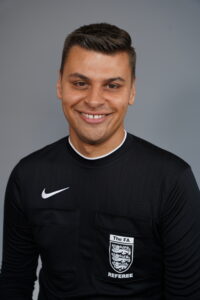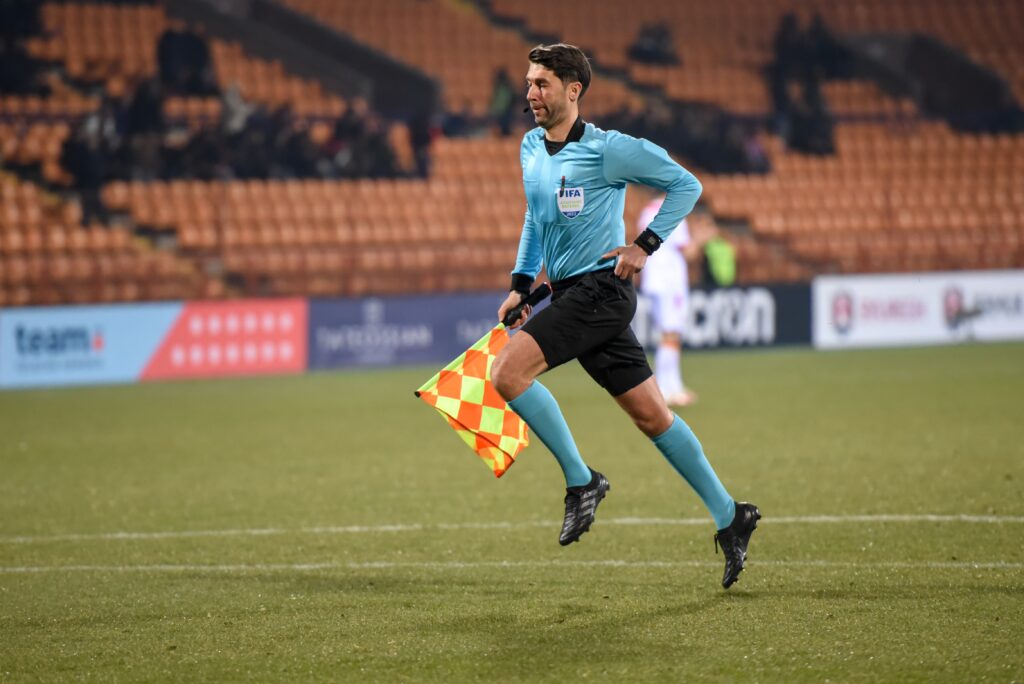Many referees like to pride themselves on being “tough” and pushing themselves to the limits. They are hyper-focused on their goals and apply all their energy towards the big appointment or performance coming up in the near future or the end of the season. They wake up early to train, put in extra time to brush up on Law knowledge, go on diets, and even sacrifice social time in order to squeeze in every possible second of perfecting their skills.
So what’s wrong with this?
Well, for starters, there’s no work/life balance! While it’s important to learn the art of concentration and give everything you’ve got in training and on matchday, you are setting yourself up for burnout if you keep it up without the appropriate downtime and a connection to why you fell in love with refereeing in the first place. Secondly, your officiating career, whilst important, should not define all of who you are! What happens if you do your best and still make a mistake, come in 5th in the banding table, or injure yourself because you were so stressed about the outcome that your body got too tense and distracted from the task at hand?
Your self-worth should never be tied to your performances, and your body is not a machine.
Having perspective on your refereeing career goes hand in hand with having balance and personal care, which includes your mental and physical health. If you can slow down long enough to realise that you’re dehydrated or that you’ve barely spent any time with your close friends or siblings, then you’ll see how these things are just as important at recharging you as gym session.
To help you regain a sense of balance, here are some essential self-care practices for match officials:
1. Hydrate.
This may sound basic but you’d be amazed at how many referees either forget to drink enough water before/after strenuous activity, or drink things that aren’t really hydrating their bodies. When you’re engaging in physical activity your body needs a lot more water to produce sweat and create the chemical reactions needed to maintain strength, agility, and a clear mind. Drink several litres of pure, clean water every day!
2. Sleep.
It’s been scientifically proven that teenagers need more sleep than adults, but what tends to happen with this age group is that they stay up late doing whatever they like in the evening and then wake up very early in the morning to train before school. Inadequate sleep is definitely going to hurt your performances in the long run. Your body doesn’t just do “nothing” while you sleep, it actually does the very important work of detoxing and repairing tissue damage, both of which are vital for officials. Beyond that, not getting enough sleep on a regular basis will make you feel tired and sluggish so that all those efforts in the arena are going to feel more difficult than they would if you were well-rested. Get at least 8 hours of sleep every night, 9 as often as you can.
3. Eat real food.
These days you can’t throw a stone without finding some protein powder or bar that promises to build muscle and give you energy. It’s much healthier to eat whole food that has real nutrients, especially fat and protein which are essential for energy. Ditch the processed foods and feed your body what it really needs to reach peak performance, real food with lots of vitamins and minerals!
4. Relax.
It’s kind of ironic but your body requires a healthy dose of rest and stillness in order to generate strength and power and fire at all cylinders. Just like sleep, general rest helps you chill out and de-stress when you’re not directly under the pressure of performance. Having this time and space will allow you greater focus, flexibility, and a fresh perspective to address challenges when you’re back in the heat of a fixture. Relaxing means taking time to just do nothing sometimes, sitting in your garden, reading a book, meditating, going for a walk, or spending a day at the beach.
5. Enjoy time with friends and family.
Being surrounded with people you love and who love you nourishes you on a deeper level. These are the people who support and motivate you no matter what, they make you laugh and remind you about what matters most in life. This perspective is priceless and will only help to propel you further in all of your life’s endeavours.
6. Address your pain.
Finally, we can’t address self-care without talking about injuries. If you are hurt you must address the issue right away! Don’t try to be a tough person and pretend like that twist and pop didn’t hurt, or that you’re “fine” the next day when you’re still in pain. Ignoring injuries because it’s inconvenient to get checked out or because you worry about sitting out the rest of the season is NOT going to do you any good. Your body is your instrument and if it needs some TLC to heal properly then have the patience to do what it takes. If you address it right away you’re much more likely to recover quicker and get right back out in the middle.
Remember to check in with yourself occasionally and see if anything is out of balance. Is your work suffering? Make time to study or ask for help. Are you feeling tired all the time? Make sure you’re resting and eating enough. Is something up with your health? See your doctor. Being aware of what’s out of balance and addressing it will only strengthen your ability to achieve a great flow in your refereeing and life! And whatever happens, keep in mind that you are not your performance!
At The Third Team I work individually and in collaboration with different professionals where I have developed workshops and 1-2-1 sessions associated with Resilience and Mental Toughness Development to help referees. The workshops and 1-2-1 sessions are interactive, where referees are encouraged to open up and share their experiences to help themselves and each other.
Feel free to contact me if you’d like to know more about my workshops or 1-2-1 sessions and how I could help you or your officials.
Best Wishes,

Nathan Sherratt
Referee Educator & Managing Director of The Third Team

Nathan Sherratt
Nathan Sherratt, Referee Educator, Resilience Trainer and Managing Director of The Third Team. A Mental Toughness Practitioner based in County Durham, North East England.

